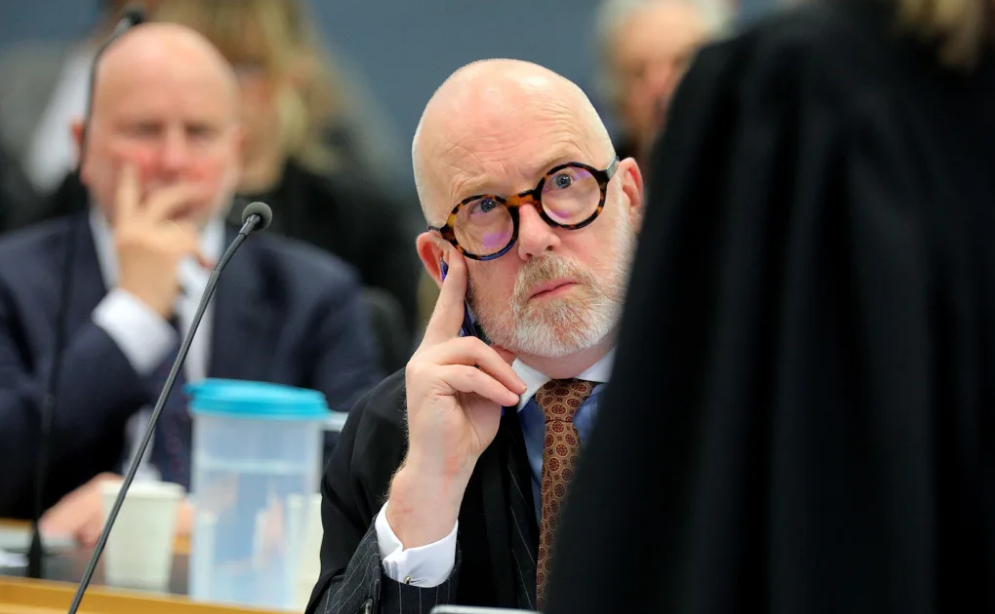
By Maia Ingoe
The defence for an Auckland eye surgeon accused of murder has urged the jury to do away with notions of murder mystery and phantom killers, and focus on the facts.
The Crown has delivered its final closing statements in the trial of Philip Polkinghorne for the murder of his wife, Pauline Hanna, in 2021.
Defence lawyer Ron Mansfield, KC, told jurors today: "This has been a trial prosecuted by emotion, where the victim is logic.
"And what a blockbuster my learned friend's closing address was to you. Our very own modern-day murder mystery."
The defence maintained throughout the trial that Hanna had a history of mental health and died by suicide, while the Crown has said it was staged after Polkinghorne strangled her in a violent altercation.
The defence has asked the jury to find sympathy with Polkinghorne, painting a picture of a grieving man thrust into a 16-month police investigation of his wife's death.
Mansfield said the publicity of the investigation, doggedly reported on by the media, isolated Polkinghorne from the day his wife died.
"Tongues were wagging around Remuera, and soon, the press reported that there had been a death at the address [and] that it was being treated as suspicious.
"Logically, people's minds and attitudes were turned against him. There was very little he could do about that. He was yet to bury his wife but now had to deal with the indignity and insult of the public - their friends, their family and their work colleagues - being told of this, and the indignity and insult of their entire private lives being turned upside down by the police investigation."
Polkinghorne was treated unfairly by police - not knowing he was being treated as a suspect at the time of his police interview, and having his Remuera house held for investigation until the day after Hanna's funeral, Mansfield said.
He said the jury should remember the context of Polkinghorne's isolation when he turned to sex worker Madison Ashton, one of the only people that would see him. Polkinghorne was found at a Mount Cook chalet with Ashton three weeks after his wife's death.
"It is easy to sit in judgement of this man in relation to his continued relationship with her, and him meeting up with her at the end of that month."
Mansfield said the full answer to the questions of Hanna's death had always been in the forensic evidence.
Crown pathologists concluded Hanna died by neck compression, with a number of possible causes, one being partial hanging - but defence pathologists said they were able to rule out homicide, meaning it must be partial hanging by suicide.
"The forensic material in this case does answer this case for you, it provides the complete answer and it always has. It has provided the complete answer from the 6th of April, the date that the autopsy was conducted and the report was given."
He said there was an absence of any other injuries typical of a homicide - meaning the murder would have to be done by a "phantom".
"Out of the four pathologists you heard from - three of whom are eminently senior within our world of pathology - only two had potential examples of this phantom, this theory of a potential death by way of homicidal strangulation, but leaving no injury at all."
Mansfield told the jury the Crown's case would mean Polkinghorne would have to conduct a perfect, leave-no-trace, murder.
"We have unmasked the phantom folks, apparently, and it's Dr Polkinghorne. He's not only, it seems on the Crown theory, a master manipulator, but he would be a highly efficient and well-trained killer, to leave someone dead, even if he wanted to, without any telltale sign or injury that you might expect for a fatal strangulation by way of homicide.
"He would have to be the phantom."
Mansfield said the Crown had sought to paint Polkinghorne as a villain through his relations with sex workers, but he argued this was part of a private agreement between the two.
In a secret recording of Hanna played to the court, called the Longlands recording, she called Polkinghorne a 'sex fiend' and said he had sex with other women.
"Neither of them anticipated that they very personal and private lives they had by agreement would be a matter of public scrutiny and debate," Mansfield said.
"They chose to have a complex relationship that involved the use of sex workers. But if it wasn't a problem for her what right do we have to make it a problem for us?"
Mansfield said Hanna was independent and was able to leave if she wanted to, and while there was discussion of separation in 2019, none of the messages between the couple in the weeks before her death show conflict in their relationship.
He asked the jury to compare the accusation of a prior strangulation attempt by Polkinghorne - recounted by friends, Victoria (Pheasant) Riordan and John Riordan to the court - to what Hanna said in the Longlands recording.
"Now I'm not going to suggest that Pheasant and John Riordan are liars. But I am going to suggest you need to look with care at what they say, to what she was clearly saying to her own brother Bruce and Rose and Longlands: I am not physically battered, I am not abused, I am safe darling, please think I am safe."
Mansfield said John Riordan went out of his way to describe Polkinghorne as controlling and manipulative.
The defence closing arguments continue.













